News
“HUMAN RIGHTS – CULTURAL HERITAGE” ABCP SIDE EVENT IN GENEVA
Most Ven. Da Lama Khunkhur Byambajav, ABCP Secretary General, made a presentation entitled “Buddha’s Philosophy of Equality” at an event under the topic “Human Rights – Cultural Heritage”, which was held as a side event of the UN Human Rights Council 57th Regular Session in Geneva. Following is the full paper presented by the ABCP Secretary General.
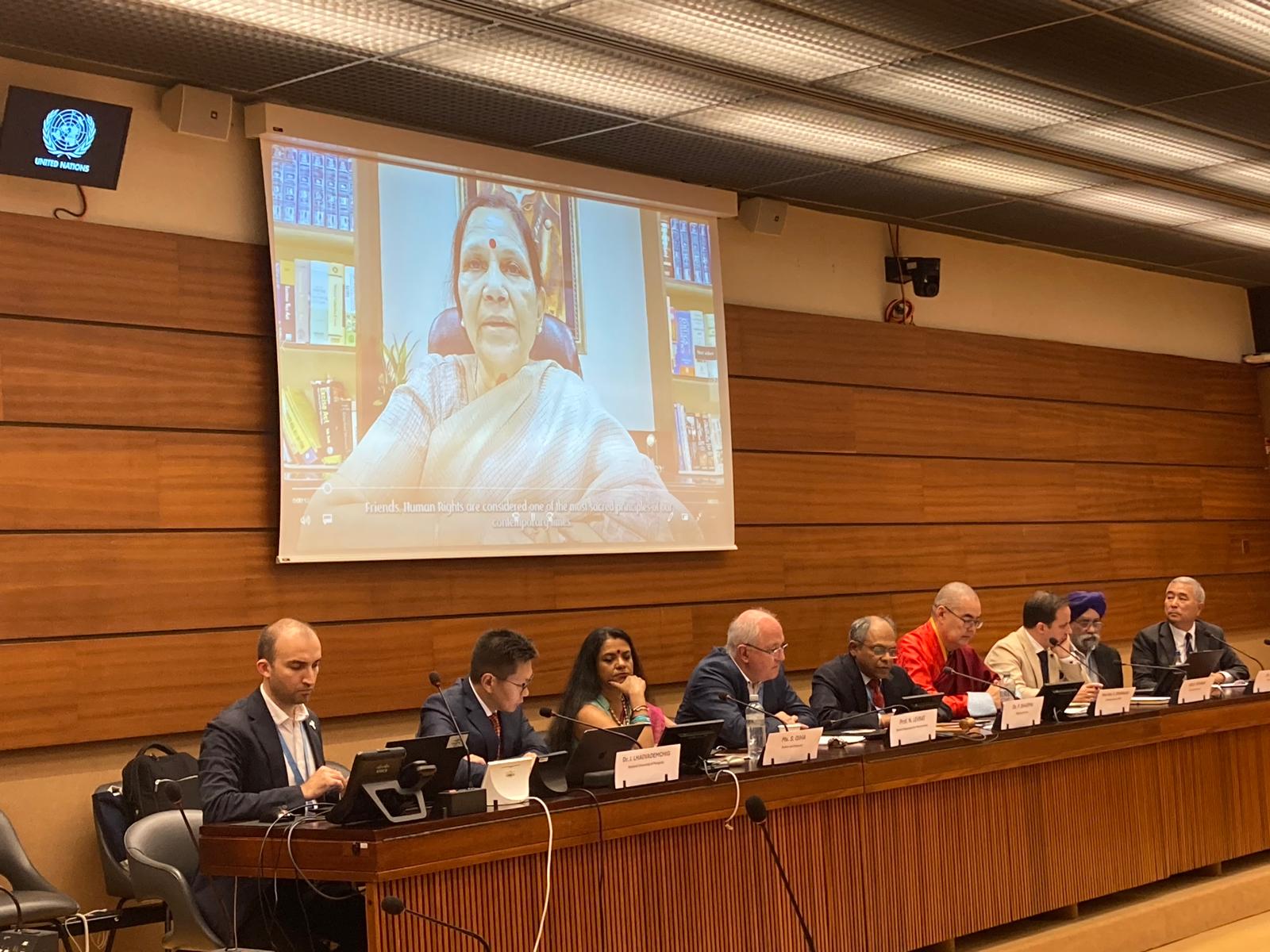
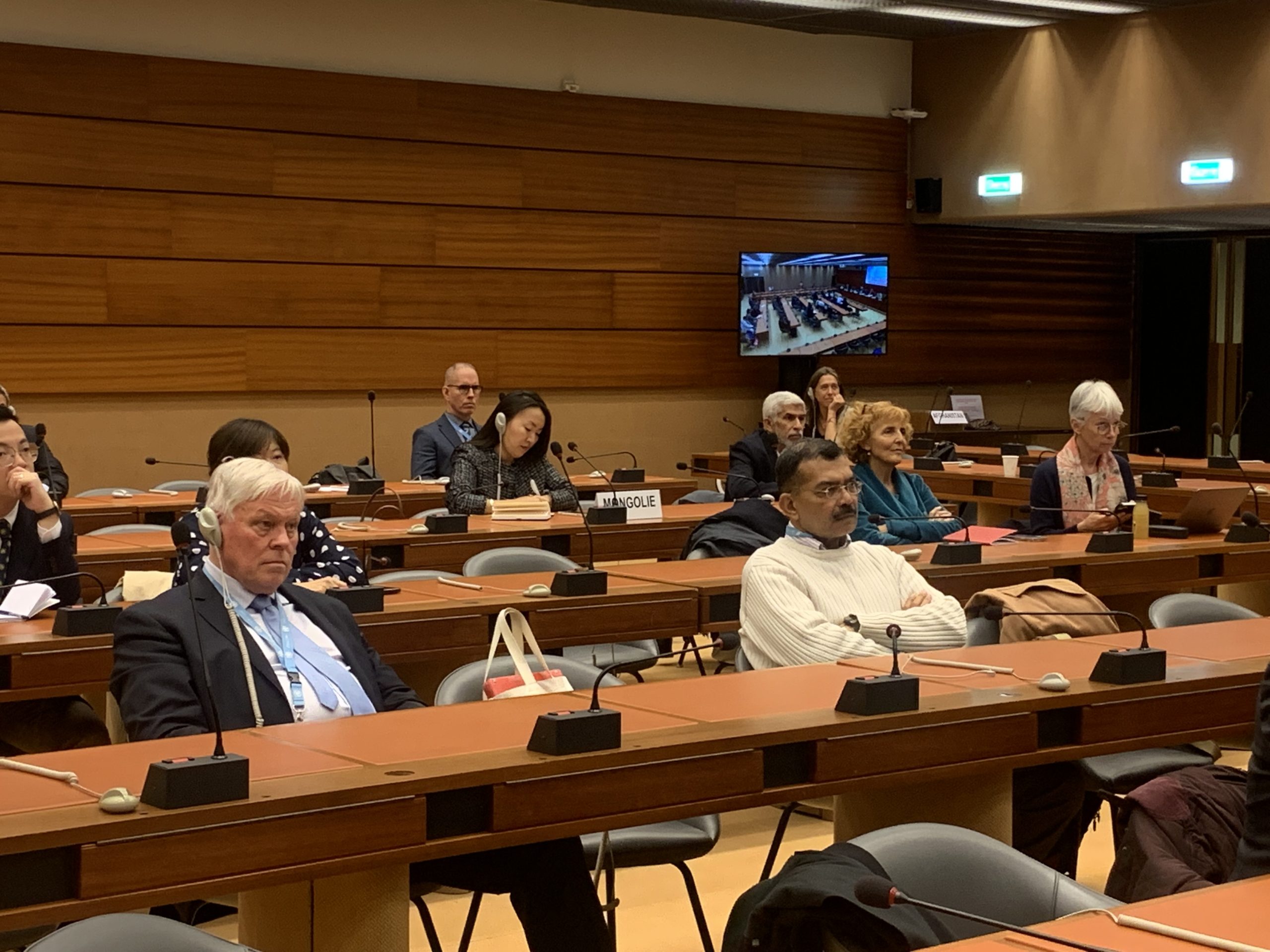
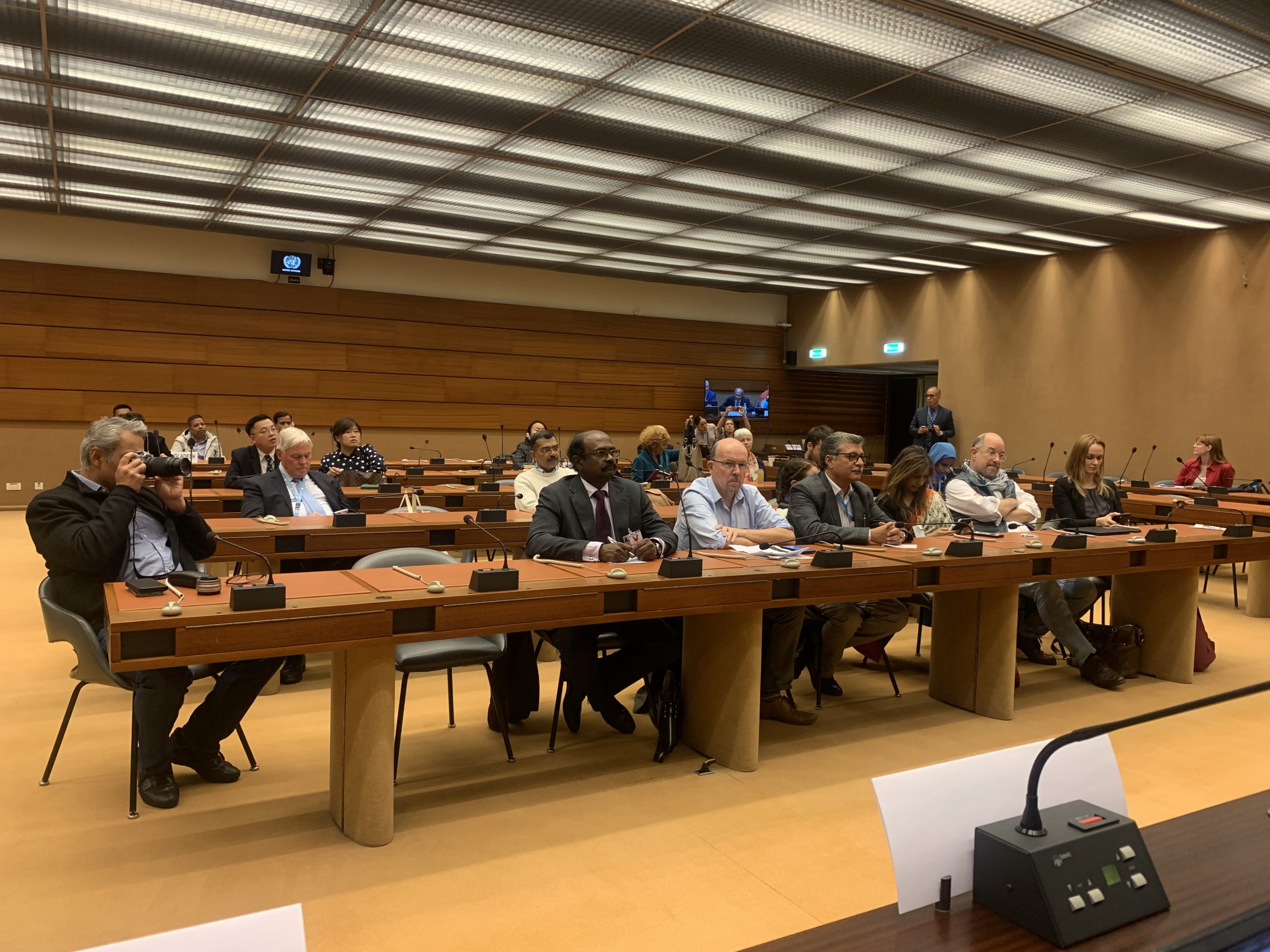
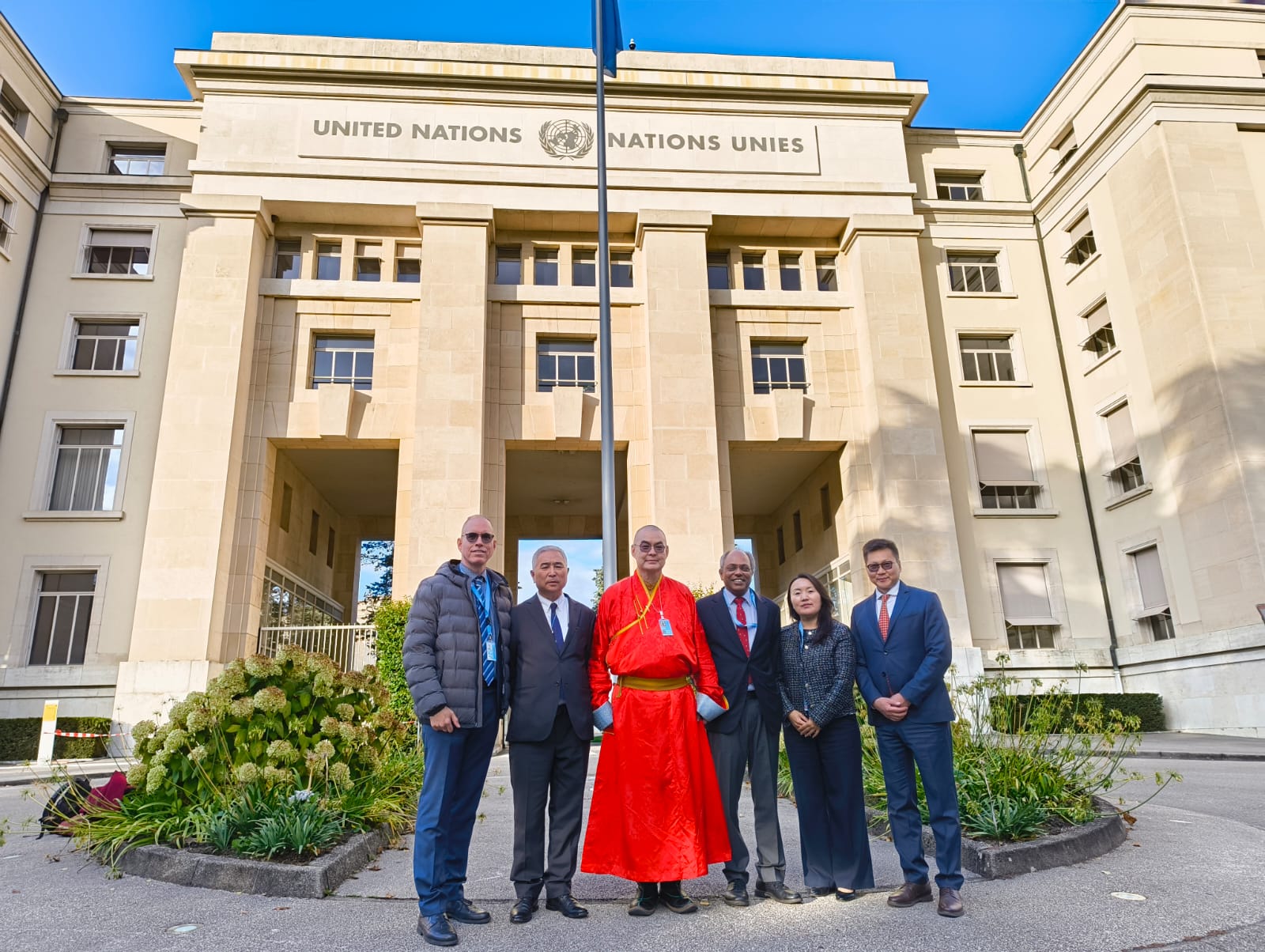
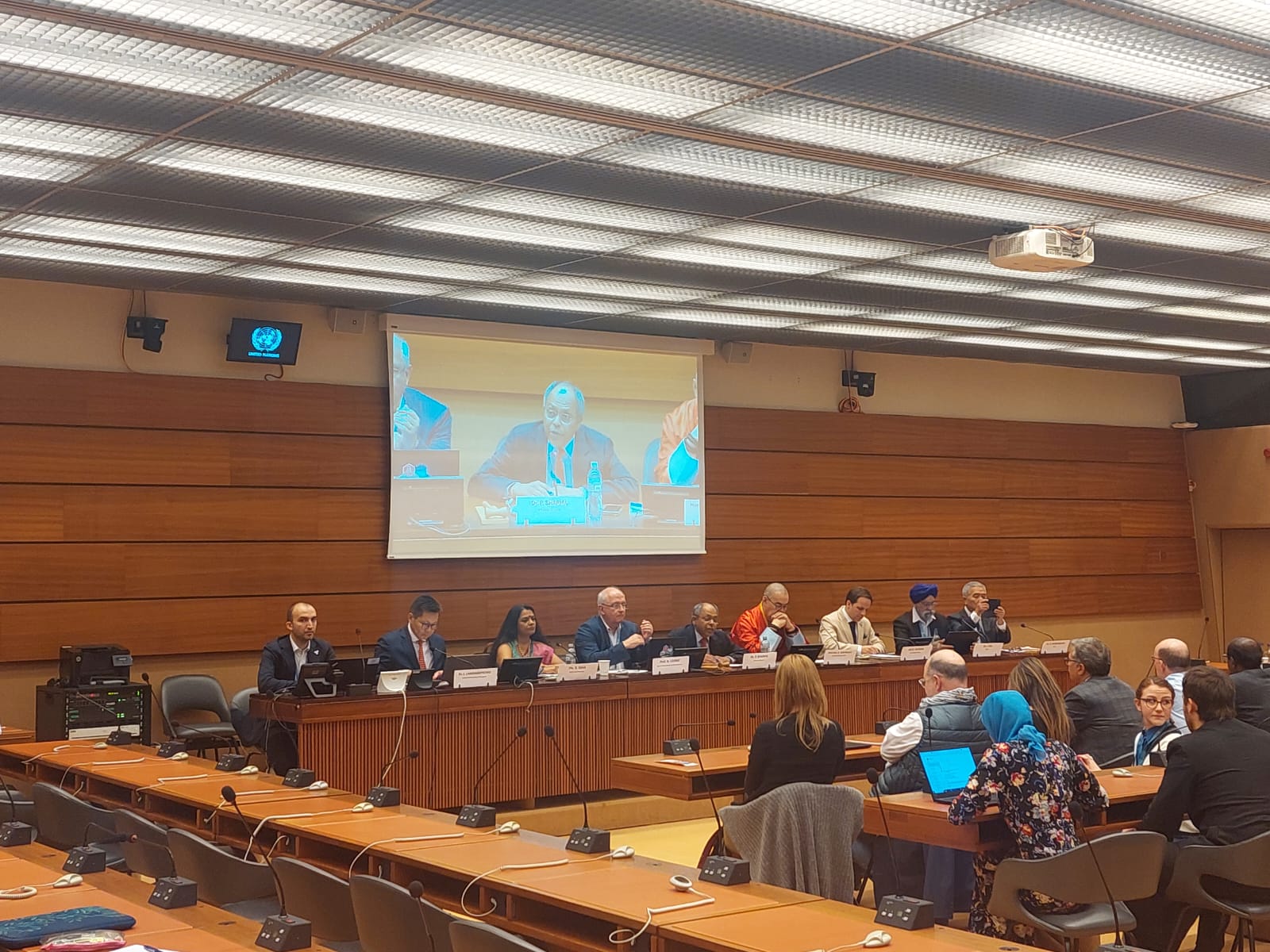
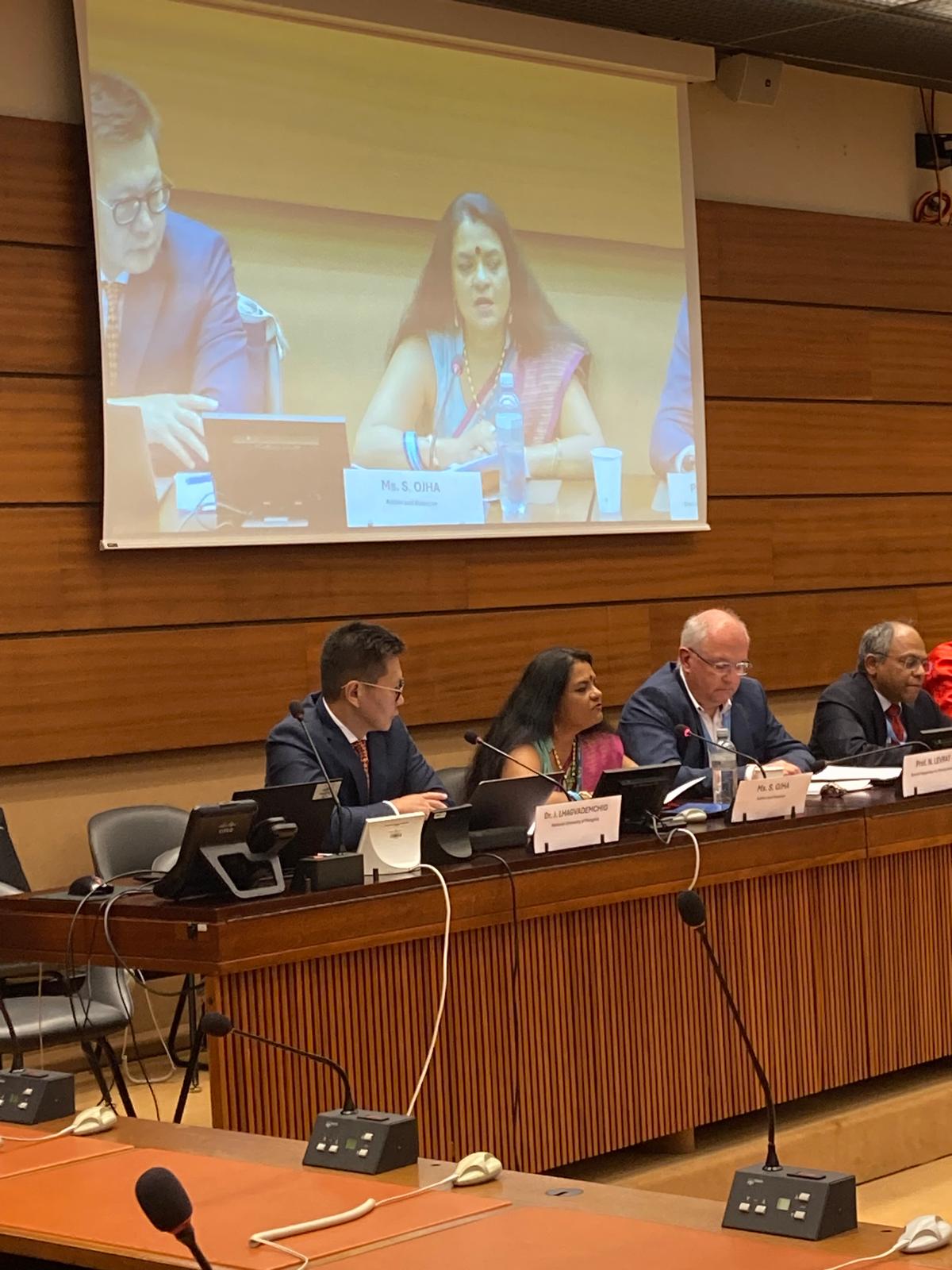
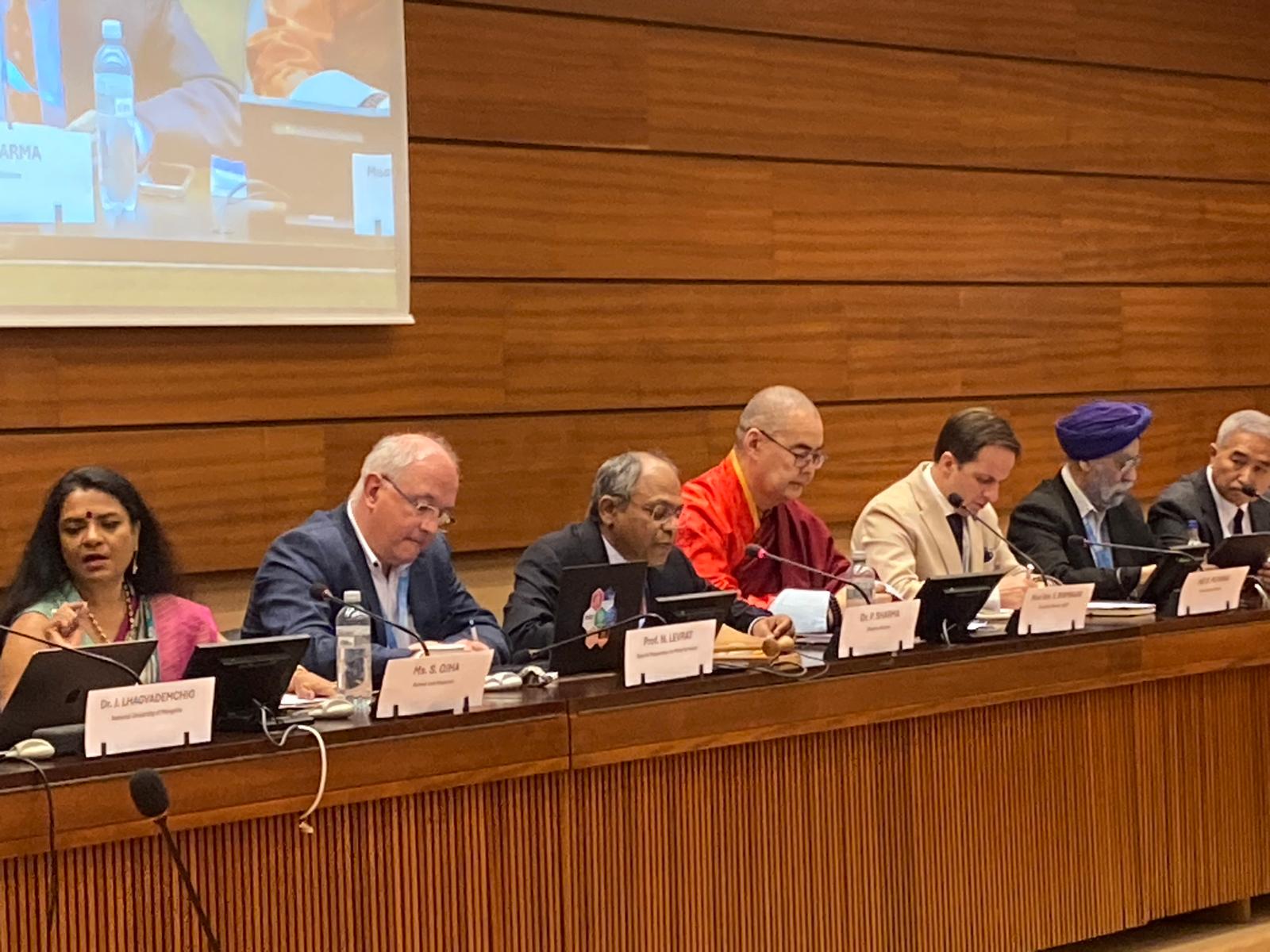
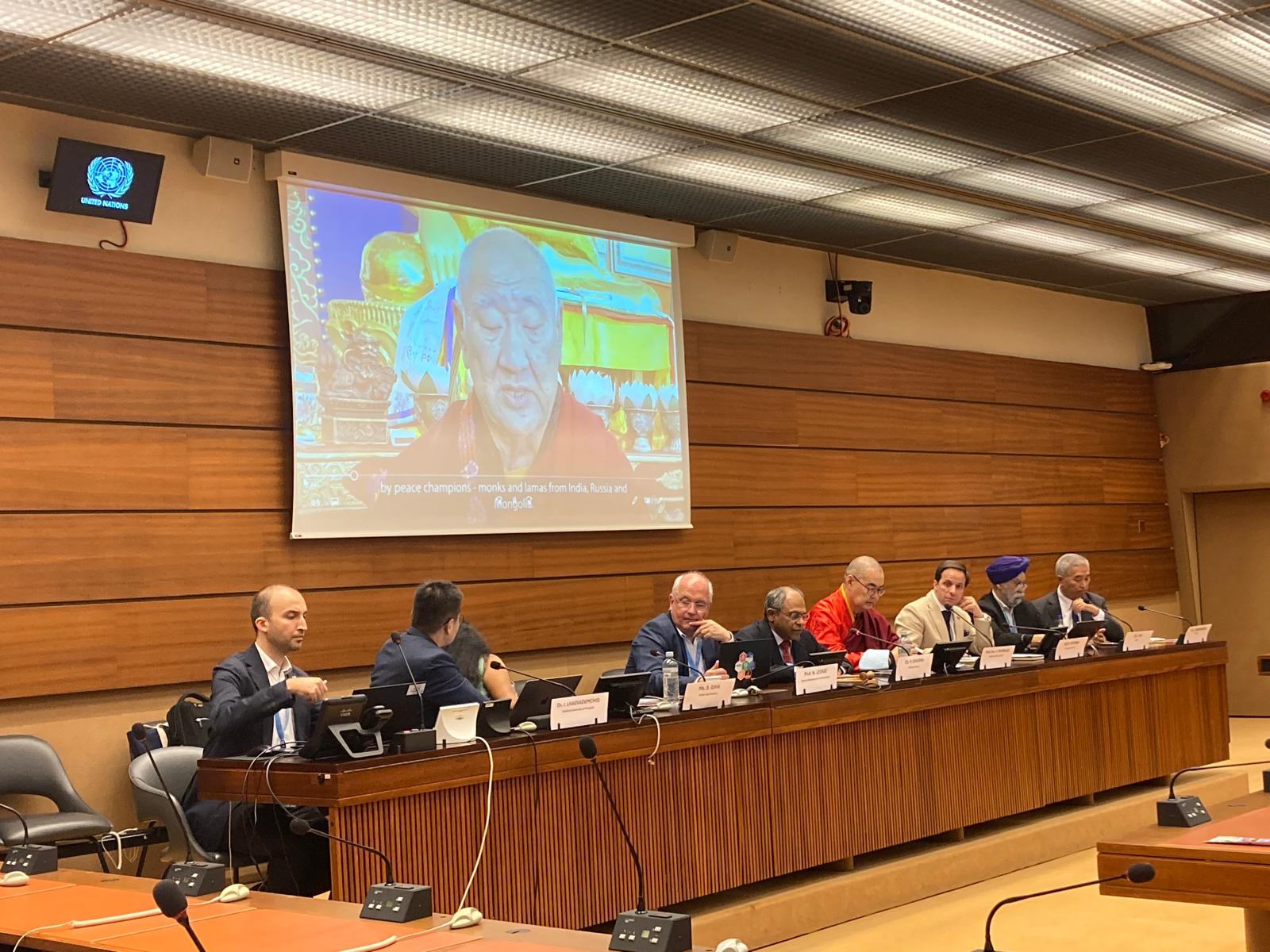








Buddha’s Philosophy of Equality
By Most Ven. Khunkhur Byambajav, Secretary General,
Asian Buddhists Conference for Peace
I extend my heartfelt greetings to the human rights and peace envoys, as well as the honored guests who have come to attend this event. I sincerely express my gratitude to all of you.
The Asian Buddhists Conference for Peace is an international non-governmental organization that unites Asian Buddhists, which directs its activities toward global peace and security based on the basic teachings of Buddha. This organization has a history of contributing to global peace, security, mutual understanding, and the unity of cultures and civilizations.
The teachings of Buddha Shakyamuni, the great leader of compassion, peace, tolerance, and harmony, are a spiritual and cultural treasureы for humanity. These teachings instill hope in people’s hearts and minds, guiding society out of psychological crises, fostering humane ethics, and contributing to global peace. Our cooperation, efforts, and mutual understanding are extremely important in this regard.
For us Buddhists, the ideals of peace-building are closely connected to our thoughts and practices, and these shared beliefs make it easier for us to exchange knowledge and experience.
The peace of the world depends on the peace within each country, within each family, and within each individual. Inner peace is the foundation of living in harmony without conflict with oneself and others.
Buddha taught, “Dedicate yourself to your family, dedicate your family to your country, and dedicate everything to enlightenment.”
Universal peace and security are inseparably linked to human equality and justice, making equality and justice key directions in our work.
As humans born with a high destiny, everyone has the reasonable right to live in peace without any fear.
The Universal Declaration of Human Rights, adopted by the UN General Assembly, along with other conventions and documents, serve as international standards for human rights in the social, political, economic, and cultural spheres. These principles of justice have been recognized globally and are enshrined in the constitutions and laws of many nations. In Mongolia, Article 16 of the Constitution outlines 18 rights granted to Mongolian citizens.
The enforcement of the law is ensured by the state’s coercive power. However, from the perspective of teachings and beliefs, there are opportunities to protect and strengthen human rights and equality. History records that the renowned Indian King Ashoka and other righteous monarchs governed their people and even respected the rights of animals, following the principles of Buddha’s teachings and leading their countries on the path of peace.
The teachings of all religions are for the well-being of humanity, and today, religious people are uniting with mutual understanding and determination to strengthen cooperation for peace and security.
Buddha’s teachings are a comprehensive guide to compassion and love for humans, animals, their environment, nature, and the world. Among these teachings, humans are considered to be born with a rare and precious destiny. By relying on human wisdom, it is possible to attain the peace of the world, the peace of Nirvana, and the peace of Buddha more easily.
Buddha exists beyond partiality, near or far, and encourages the cultivation of great compassion by reflecting on the benefits of helping others and being helped.
This boundless compassion, directed toward all, suppresses selfishness and brings true happiness to both oneself and others. Happiness is gained not by seeking good from others but by wishing good to others and by helping them.
For all beings, whether human or animal, the desire for life, livelihood, and happiness is the most valuable thing. Respecting and aiding this desire is one of the most noble deeds.
For a person to fully enjoy their freedom, they must be healthy in both body and mind, and have the opportunities for learning and living. This is the result of the karma from respecting others and causing no harm.
Malicious and sinful acts against others become the cause for the loss and restrictions of one’s own freedom, and beneficial and virtuous deeds to others become the cause of guaranteeing and solidifying one’s own freedom. Therefore, it is important to act in a way that benefits others or, at the very least, refrain from causing harm.
The cause of suffering lies in negative thoughts and sinful and wrong actions, while the cause of happiness is positive thoughts and virtuous deeds.
Thus, one should not only seek the causes of happiness and suffering from the outside but also from within one’s own inner mind and actions. This concept is highlighted by Buddha’s saying, “You are your own savior and you are your own enemy.”
Now, let’s briefly discuss the principle of equality in Buddha’s teachings:
- Freedom of Religion – Buddha said, “Just as gold is tested by burning, cutting, and polishing, so too should my teachings be closely examined, not simply accepted out of faith.” This emphasizes freedom of choice in belief, free from mere devotion or imposition. A good student is not one who follows the words blindly but one who seeks their meaning and approaches them with reason.
- Gender Equality – Both men and women can equally attain enlightenment, with no distinction based on gender. The love, care, and beneficence of mothers are immense, and Buddha taught that one cannot reach enlightenment without acknowledging and repaying the kindness of one’s mother and others. In tantric teachings, women are held in the highest respect.
- Social Equality – The society was divided into different strata, which denied some individuals the right to enjoy inborn freedom. Lord Buddha considered this division as unfair. He taught that social equality comes not from fate or divine assignment but from learning the right teachings and living a virtuous life. Those who do so are the true nobility.
- Equality in Interdependence – Everything exists in dependence on others; nothing can exist in isolation. Our bodies come from our parents, our minds are a continuation of past beings in their previous life, and everything we use comes from the efforts of others. Our knowledge and education depend on our teachers. Therefore, understanding that “I” cannot exist without others, we should abandon our own egoistic pride, recognize others’ contributions, and strive to help them.
- Equality in Compassion – Buddha taught that all beings, human or animal, have been our mothers in past lives, sustaining us with their love and care. All beings go through visible and invisible, small and big sufferings; no being desires suffering but overly desire happiness. Buddha taught us to show compassion believing that others are sentient beings just like yourself. This was mentioned earlier.
- Equality in Learning and Enlightenment – The essence of the Buddha or the potential for enlightenment exists in every mind. The sutras state that while the mind is clouded by temporary impurities, its true nature is luminous, allowing everyone to learn, eliminate mental defilements, and ultimately reach enlightenment.
Buddha said, “Buddhas do not wash away the sins of beings with water, nor remove their suffering with their hands, nor transfer their realized wisdom to others; they teach the truth, and beings are liberated by practicing it.” This emphasizes that the teachings themselves are the true providence.
In the book “Stages of the Path to Enlightenment,” students are described as “honest, knowledgeable, and seeking truth.” Honesty refers to not dismissing others’ teachings while not being excessively attached to one’s own, fostering an impartial attitude. This impartiality is the foundation for attaining broad knowledge, understanding and acknowledging that every teaching has both its strengths and weaknesses.
- Equality in Karma (Cause and Effect) – Some teachings suggest that even if a person from the upper class performs wrong actions, they do not go to hell, while a person from the lower class does not rise even if they perform good deeds. However, in reality, anyone born into this world experiences the consequences of their actions, regardless of their social status. The revered Nagarjuna said, “Actions motivated by anger, ignorance, and greed are sinful, while those not motivated by these are virtuous.” Bad actions bring suffering unless one atones for them, and thus, the principle of avoiding harmful actions and embracing good deeds is a universal law of equality.
- Equality in Forgiveness and Patience – When one’s mind is consumed by emotions like anger, greed, confusion, jealousy, or arrogance, one’s actions tend to be soiled and negative. A person suffering from the disease of disturbing emotions may unknowingly harm others, even harming themselves in the process, such as when people, driven by anger, take their own lives.
Just as we feel compassion for a loved one suffering from a physical illness, similarly we should also feel compassion even for those who are afflicted by disturbing emotions even if they are our enemies. Gained I the virtues of self-control having iconized my loathed enemy, but gained he the sin – the cause of suffering by making me an icon.
On the contrary, we can forgive by understanding and believing that I have benefited, and the other has not. This is what we call mutual forgiveness. An enemy can become true friend and vice versa. Therefore, treating both the enemy and the friend equally, without excessive attachment or aversion, is the foundation for overcoming anger and desire.
Buddha’s teachings on equality, respect for one another, and non-violence align perfectly with the ideas and principles of the United Nations. When combined with wisdom and compassion, they can unquestionably become the foundation of and a universal guide for ensuring the peace and well-being of all sentient beings.
Thank you for your attention.
Contact Us
- Da Lama Kh.Byambajav, Secretary General of ABCP, Gandantegchenling Monastery, Ulaanbaatar-38, Mongolia 16040
- abcphqrs@gmail.com
- +976 11 360069, +976 99117415
- Mr. Burenbayar Chanrav, Senior Manager, ABCP, Gandantegchenling Monastery, Ulaanbaatar-38, Mongolia 16040
- cburenbayar@gmail.com
- +976-99101871
Newsletter
You can trust us. we only send promo offers,

